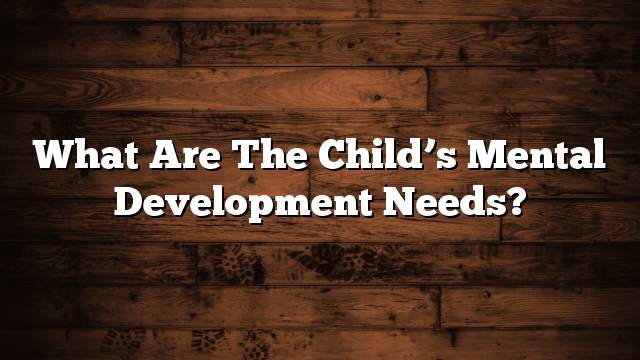1. The need for research and reconnaissance: The child’s mind grows with its sensory motor development and these two are closely related. A child tends to play, movement, knowledge and exploration. The child acquires knowledge and grows his knowledge through his own experiences, using his senses of sight, hearing, taste, tattoo and touching. They are the doors of knowledge and understanding of the environment in which he lives.
2. The need to acquire language: As the child’s mental development is related to sensory motor growth, it is also related to linguistic growth. Language is the means of communication of the child around him and his influence on the environment and tradition is affected.
3. The need to develop the ability to think: The process of thinking represents the processes of motor development and linguistic development in the child and depends on the process of preparation and inherent maturity and the experience of the child’s personal sense of the surrounding environment, and the child’s thinking is based on the perception of sensory and the mental images of different sensory and verbal And recall it in his mind when necessary in the context of mental activity.
The child gets his experience from his interaction with those around him and helps him to understand the meanings without realizing the word and also help him to understand the meanings of the words heard by adults.
The child recognizes the meaning of things before pronouncing them and when he knows how to pronounce words on things, words and meanings are more pronounced and firm in his mind.
This is easy to remember and retrieve with the mental picture of his experiences and easy to use in thinking and comparison and linking things to each other.
Language skills are essential to the growth of thinking as they:
1. Helps the child to interact with others and express himself and transfer his ideas to those around him.
2. Increase your knowledge of things by asking and asking.
3. Increase his knowledge of the answers to the questions in his mind where he can question them.
4. Looking for reasons, causes and comparison of things.
5. Promotes knowledge and mental development.
6. To practice motor skills and acquire language skills that strengthen his thinking.
7. In order to satisfy the child’s need for integrated mental, motor, and linguistic development, a suitable environment must be provided to encourage him to play, research, experiment, communicate and interact with those around him.
The child’s thinking revolves around individual and personal things, not general ideas and holistic meanings. The ball is something he plays at the age of five.
